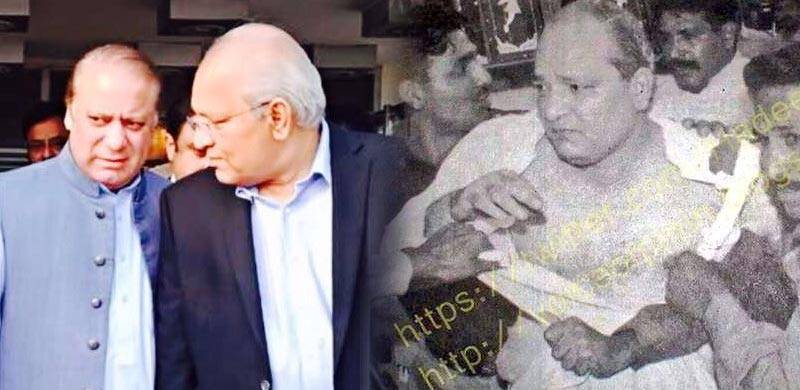
Senator Mushahidullah Khan, a giant of the Pakistan Muslim League (N), breathed his last in Islamabad. The 68-year-old veteran was currently serving as a member of the Senate since 2018 and had been allotted a ticket to run in the 2021 Senate elections. Mushahid Ullah Khan served as Minister for Climate Change, from August 2017 to May 2018 and previously served as Minister for Climate Change in 2015.
Khan was, in many ways, different from the majority of the legislative class that dominates Islamabad. He had the ability to say things as they were and not mince words. He reserved the uncanny ability to make bold and upright statements in a politics dominated by fear of repercussions. Perhaps, as one of those from the old guard of Pakistani politics, his most valued trait was loyalty. Mushahidullah Khan had been a member of the Pakistan Muslim League (N) since 1990.
The Gordon college graduate, who was born in Rawalpindi, observed many highs and lows in his political career, spanning 3 decades. His penchant for speaking his mind with utmost clarity materialised into the infamous BBC interview. In an interview with the BBC Urdu, he alleged that General Zaheer Ul Islam (Ex-DG ISI) wanted to overthrow the civil and military leadership of Pakistan during the 2014 Azadi march, led by Imran Khan and Tahir Ul Qadri. The interview resulted in shockwaves across Pakistan’s political spectrum, as General Asim Bajwa (then DG ISPR) dismissed these allegations as baseless and Mushahidullah Khan was forced to resign. He claimed that he had heard Zaheer Ul Islam’s telephone conversation centred on executing the 2014 dharna and that the audio had been recorded by the Intelligence Bureau. Mushahidullah’s interview stood the test of time, as Nawaz Sharif stated during a party address in September 2020 that he was indeed asked to resign by General Zaheer Ul Islam in 2014.
During an increasingly heated political discourse since the 2018 elections, Mushahidullah Khan held back no punches. His speeches on and off the Senate floor were strongly critical of the current regime. He spoke against the many layers of censorship and highlighted the illegitimacy of the current government. During media appearances, he exuded distinct charisma because of his unapologetic stances. He was a staunch supporter of Nawaz Sharif and lamented the targeted accountability drive against PML-n supremo and co. Having exchanged many a blow with treasury benches on the Parliament floor, Mushahidullah was extremely popular within party ranks and media for his use of poetry.
Mushahidullah’s political activism was underpinned by a belief in democracy. He was wrangled by the police during Musharraf era protests and has been pictured almost bare-chested as a result of wrangling.
As Mushahidullah breathed his last, he is another one of the Old Guard to depart Pakistan’s political landscape. For Nawaz Sharif, he has now lost another loyal soldier in his ranks.
Khan was, in many ways, different from the majority of the legislative class that dominates Islamabad. He had the ability to say things as they were and not mince words. He reserved the uncanny ability to make bold and upright statements in a politics dominated by fear of repercussions. Perhaps, as one of those from the old guard of Pakistani politics, his most valued trait was loyalty. Mushahidullah Khan had been a member of the Pakistan Muslim League (N) since 1990.
The Gordon college graduate, who was born in Rawalpindi, observed many highs and lows in his political career, spanning 3 decades. His penchant for speaking his mind with utmost clarity materialised into the infamous BBC interview. In an interview with the BBC Urdu, he alleged that General Zaheer Ul Islam (Ex-DG ISI) wanted to overthrow the civil and military leadership of Pakistan during the 2014 Azadi march, led by Imran Khan and Tahir Ul Qadri. The interview resulted in shockwaves across Pakistan’s political spectrum, as General Asim Bajwa (then DG ISPR) dismissed these allegations as baseless and Mushahidullah Khan was forced to resign. He claimed that he had heard Zaheer Ul Islam’s telephone conversation centred on executing the 2014 dharna and that the audio had been recorded by the Intelligence Bureau. Mushahidullah’s interview stood the test of time, as Nawaz Sharif stated during a party address in September 2020 that he was indeed asked to resign by General Zaheer Ul Islam in 2014.
During an increasingly heated political discourse since the 2018 elections, Mushahidullah Khan held back no punches. His speeches on and off the Senate floor were strongly critical of the current regime. He spoke against the many layers of censorship and highlighted the illegitimacy of the current government. During media appearances, he exuded distinct charisma because of his unapologetic stances. He was a staunch supporter of Nawaz Sharif and lamented the targeted accountability drive against PML-n supremo and co. Having exchanged many a blow with treasury benches on the Parliament floor, Mushahidullah was extremely popular within party ranks and media for his use of poetry.
Mushahidullah’s political activism was underpinned by a belief in democracy. He was wrangled by the police during Musharraf era protests and has been pictured almost bare-chested as a result of wrangling.
As Mushahidullah breathed his last, he is another one of the Old Guard to depart Pakistan’s political landscape. For Nawaz Sharif, he has now lost another loyal soldier in his ranks.
